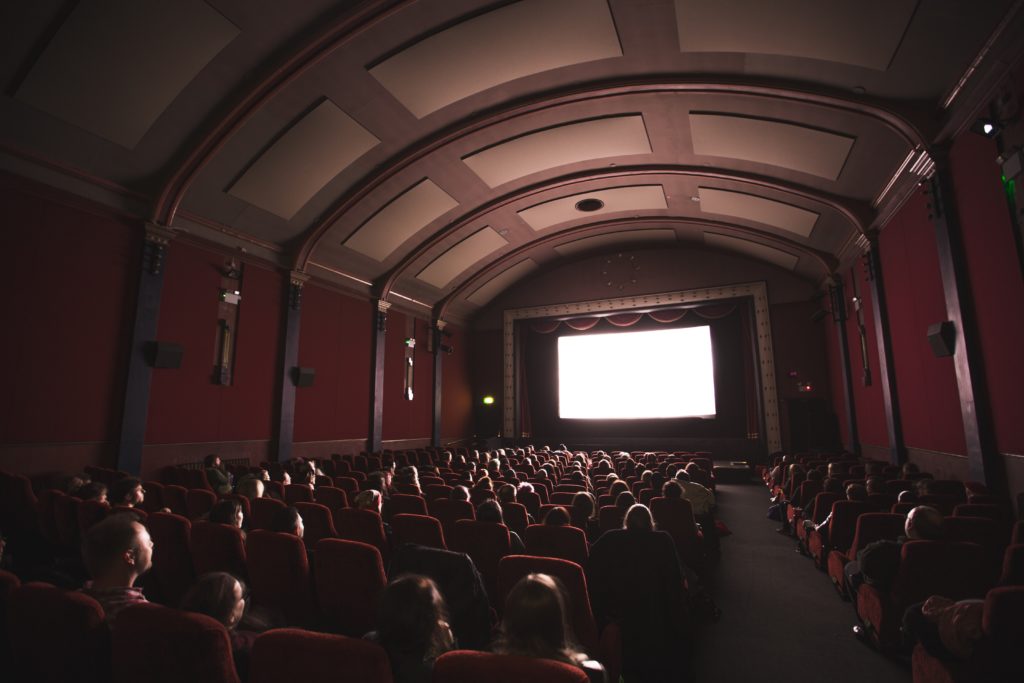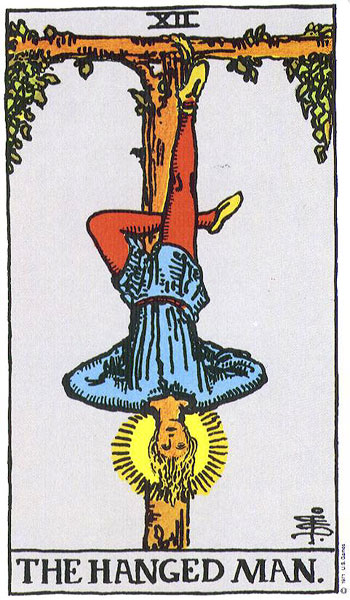“You are braver than you believe, stronger than you seem, smarter than you think, and loved more than you know.” – A.A. Milne
It seems to me right now we’re all being called to become our best selves. We’re being asked to stretch and grow in ways that are uncomfortable and unfamiliar. Milne’s quote reminds me so often I sell myself short and there is more courage, strength, intelligence, and love within me than I acknowledge.
There is some not-fun stuff going on in the world, as per usual, and the challenge for us is to rise to the occasion. For me personally, that means getting in touch with my inner power. Often I want other people to do the heavy lifting in my life. I want them to “fix me,” to “make me better,” to “have all of the answers,” or in some way allow me to play the damsel in distress. The place this shows up the most is with my health.

There’s more beneath the surface. Photo by Muhammad Shahzad on Unsplash.
I’m writing a long facebook note about everything my chronic illness has taught me, but for the purposes of this post I want to focus on empowerment. The dynamic that has shown up with my health is I approach doctors and healers not as partners in my path to wellness, not as people who help me to heal myself, but rather as wizards who will magically cure me without any effort on my part. I realize awe-inspiring stories of magical healing happen every day, and I so wish I could be one of those people, but thus far the universe has said to me, “Nah gurl, you gotta be your own hero and rescue yourself.”
I came to this conclusion after literally trying all the things Western and Eastern to heal my physical body and not seeing much in the way of results. A friend of mine posted about a book called Energy Medicine on Instagram and even seeing the title sparked curiosity within me to explore deeper. After the eclipse, an intense and passionate desire bubbled up within me to start reading the book. It’s a synthesis of all the modalities I have familiarity with – acupressure, energy meridians, chakras – and describes them in a practical way. The book explains why certain spots on my body are tender, or why I instinctively cradle my stomach. More importantly though, it’s empowering me to heal myself.
It’s early days, but even if I don’t see the results I’d like, it seems like a valuable lesson to remember I have power and magic within me. That I am capable of more than I think I am. That I don’t have to outsource everything to other people. This post is all about me, but the principle applies to the broader society as well. How many of us think what’s happening is “someone else’s” problem? Or that “someone else” will take charge? And how much of that is based on insecurity or inferiority?
My spiritual teacher says over and over again, “You should behave with every created being, every human being, in such a way that neither a superiority complex nor an inferiority complex develops in you, or in those with whom you interact. … A person must not suffer from an inferiority complex, because that person and his or her friends and siblings are all the progeny of the same Progenitor. They come from the same origin.”
That means I’m just as capable as anyone else. That means the same power within others is also within me. And vice versa.
I dream of a world where we recognize we all have inner power and strength. A world where we remember no one is superior or inferior to us. A world where we realize we are braver than we believe, stronger than we seem, and smarter than we think.
Another world is not only possible, it’s probable.
As of right now, at least four of my friends are pregnant. Also, within the past two months, four of my friends have given birth. Birth happens every day, but to have so many people around me ushering forth new life fills me with hope and optimism, which is sorely needed right now.
Much of the news is gloom and doom, making it easy to believe the world is terrible and people are awful, but when I think of these new beings coming onto the planet, my heart swells. By and large, each generation is more progressive, tolerant, and accepting than the last. There are exceptions of course, but the majority are heading in that direction.
The other thing that fascinates me is contemplating the effect each new child will have on the world. We never know who the next Einstein will be. Even if the kid isn’t an incredible genius, each new child will likely contribute to the welfare of society, at least in my circle of friends. I base this on my observations of their parents: Awesome parents usually raise awesome children.

I have no idea who this kid is, but they’re adorable. Photo by Carlo Navarro on Unsplash.
This post is not a profound one, but rather a grateful one. When I look around me and see new children, I fully believe the world will become better and is becoming better. It’s much harder to dismantle prejudice, cruelty, intolerance, etc. in people who’ve had years of training to think in such a manner, and much easier to teach a new generation to love right off the bat.
A quote by Nelson Mandela comes to mind: “No one is born hating another person because of the color of his skin, or his background, or his religion. People must learn to hate, and if they can learn to hate, they can be taught to love, for love comes more naturally to the human heart than its opposite.”
Newborn babies can be taught to love, which is their natural inclination, and that means many of the problems we’re experiencing today will slowly fade into history. My spiritual teacher said:
All genuine spiritualists will have to adjust with the level of the dusty earth inspired by the spontaneous love of their hearts. They will have to share the wealth of their developed intellects with others to lighten the sorrows and sufferings of humanity. Through their guidance and leadership, human thinking will take a new turn and move along an entirely new path. The latent spiritual power in human beings will be awakened. Through their effort and inspiration, the new people of a new generation will be armed with a bold new optimism and vision of the future, and march forward triumphantly.
When I see babies, I see a bold and bright new future, a triumphant march forward, and that’s something to get excited about.
I dream of a world where we recognize the forward march that’s taking place. A world where we celebrate the new lives coming onto this planet who are surely ushering forth a bright future. A world where we remember intolerance and injustice will eventually die out.
Another world is not only possible, it’s probable.
In the wake of the events of Charlottesville, many friends have posted about punching Nazis in the face and inevitably someone makes a comment about nonviolence and promoting peace. They talk about how punching a Nazi in the face is incendiary, particularly if the neo-Nazi merely gathered together with other neo-Nazis in protest. I won’t get into the issues of hate speech and incitement here, but would rather like to talk about this nonviolence thing.
In yogic philosophy, nonviolence is called ahimsa. Most people incorrectly assume ahimsa means never using force ever. But in truth, the act of living is a violent one. Every time we breathe, we kill organisms. Every time we filter water, we kill something. Life is violence and I see in our country a tendency to disown violence and project it outward.

There’s a grip and a force to life, like a lizard’s foot. Photo by Katarzyna Urbanek on Unsplash.
We are a country that extols the likes of Gandhi and Martin Luther King for their peaceful protest tactics, yet we spend more on our defense budget than any other country in the world. We talk about the importance of peace in matters of civil unrest, yet we invade other countries to help them overthrow governments. We are constantly on the lookout for terrorism, quick to profile people who are not White and not Christian, yet we ignore terrorism on our own soil. Yo, something is not right here. How can we be a nation of such extremes?
I’m not an expert, I’m just another person on the internet, but I’m pretty sure we as a country are refusing to acknowledge the beast within us. We want someone else to do our fighting, yet we’re attracted to violent movies, television, and books because there’s something we like about violence. We want to believe peace is the path forward because it paints a nicer picture, but in truth, more revolutions are violent than they are peaceful. It’s rare for pleading and supplication to change the mind of an oppressor.
I’m not saying we should all walk around throwing punches at every person who looks at us funny, but force is sometimes necessary. On a personal level, anyone who wants to take away your property, your spouse, comes with a weapon to murder you, wants to snatch away your wealth, set fire to your house, or wants to take your life by administering poison, use force on them. Your life is just as important as theirs.
My spiritual teacher says, “The use of force against an aggressor is valor and desisting from such use of force is cowardice. But the weak people must assess their strength before indulging in violent conflict with a powerful aggressor; otherwise, if a fight is started without acquiring proper strength, injustice may temporarily triumph.” He also said, “Of course, if you find that the aggressor is bent on destroying you, whether you use force or not, it would be proper to die at least giving a blow to the best of your might without waiting to assemble the adequate forces.”
I’d like to believe my spiritual teacher dispenses this advice because he wants us to know our lives are worth fighting for, literally. We are all worthy and deserving of respect and that means not taking abuse from anyone, whether individually or as a group.
I dream of a world where we recognize sometimes the use of force is necessary. A world where we understand there exists within each of us a warrior-self that’s appropriate to use when the case calls for it. A world where we understand the real meaning of nonviolence.
Another world is not only possible, it’s probable.
The unexpected death of my colleague nearly a month ago unsettled me. I have a need for security and stability (we all do), and his death reminded me the world is not stable; it’s always changing. I want to know the people in my life will always be around, and if they’re dying, I want advanced notice so I can say a proper goodbye. But life doesn’t work like that, and Eric’s death reminds me a person can die at any time.
Goodness, even writing that I feel my anxiety levels rising. Let’s talk about solutions. Some of the messages I say to myself are, “I’m here. I’m not going anywhere. I’m not ever going anywhere.” On Saturday, I reminded myself those messages are true. I’m not going anywhere because when I die, all parts of me die. We’ll die together – my inner child, my inner parent, my higher self. I’m not ever going anywhere because every part of me is inextricably linked.

I like to think of our eternal companion as an audience member. Photo by Jake Hills on Unsplash.
I talk about “parts” a lot, but this is not New Age mumbo jumbo. In yoga philosophy, there are three parts of the mind. One of the parts, the mahatattva, is the observer. This is the part that’s like an audience member of a play – they see everything transpiring on the stage, but they’re not actively doing anything. That audience member, that eternal observer, if you will, is the one who has the best perspective because they literally see more than the actor on the stage.
When I self-soothe, when I remind myself I’m here and I’m not going anywhere, I connect with my observer self, which is where security and stability lies. That which is eternal is beyond spatial, temporal, and personal factors; it never changes and is always there.
My spiritual teacher says, “The unchangeable witnessing consciousness that lies behind the manifested, externalized states of consciousness, or behind these apparently conscious entities is Puruśa.” Puruśa is how I define God. Puruśa is the forever entity, the forever one who is inside of me, watching my every act. The point of my meditation practice is to realize Puruśa and I are the same. That I am it and it is me.
To quote an Indian sage, “Those of calm intellect who see Him within themselves alone attain eternal bliss. To them alone belongs abiding peace.” Over and over again I learn true security, stability, bliss, and peace cannot be found in the external world. It can only be found internally. My anxious self will never be satisfied with the constant presence of a person because people die or leave unexpectedly. They cannot be my eternal companions, but that doesn’t mean I don’t have one. Because I do. We all do. Our eternal companion, our forever one, is the witnessing entity within us and around us. The more I remember that, the better off I’ll be.
I dream of a world where we realize true security, stability, bliss, and peace comes from within. A world where we recognize we each have an internal observer, watching the drama of life unfold objectively. An observer who is with us always. A witness who is our forever companion.
Another world is not only possible, it’s probable.
The adjective I’d use to describe life right now is “surreal,” both on a personal level and a societal level. I’m still grappling with the death of my colleague, it seems strange he no longer exists on this earthly plane, and in addition, I’m reintegrating into normal life after having gone on vacation. I have a giant blue poncho that says, “I <3 Denmark” on the back of it, and yet, the entire experience feels like a dream. Did I really go there? Did I really see all the things I saw? I have the pictures to prove it, but somehow that doesn’t seem adequate right now. As a bit of a disclaimer, I’m sick so my rational brain is offline, giving everything a dreamy quality.
Even if everything wasn’t dreamy though, even if my brain was operating normally, some things I’d still classify as surreal. Our political situation, for instance. Regularly there’s a news story surfacing worthy of the Onion, a satirical publication, but instead the story is legitimate. How is this real life? Furthermore, what is real life?

Eventually this, too, will stop being “real.” Photo by Damian Zaleski on Unsplash.
I’m not a philosopher, but the question has me curious. Some people say the entire world is an illusion, or máyá. Are they right? In short, no. Is my cough an illusion? Is the chair I’m sitting on fake? No. The world exists, it’s real, but also the world is a relative truth, according to my spiritual teacher.
“No worldly form remains unchanged for a long period of time,” he said. “The world always undergoes metamorphosis; this is how it maintains its existence – through evolution, through transformation.” That means what’s true today may not be true tomorrow. For instance, I’m sick today but I won’t be sick next month, I hope. My chair exists today, but 200 years from now it will not. It’s kind of a scary thing for me to contemplate, that we live in a world where everything is temporary and reality is changeable, but the evidence proves this over and over again. For instance, it wasn’t all that long ago that people thought germs were mythical.
Some people say reality is that which can be measured and proven scientifically, but as was once the case with germs, there are things in existence our instruments are not sensitive enough to measure yet. Does that make them any less real? As much as I’d like to define reality, I’m discovering I can’t because reality is always changing. I’m going to cop out here and circle back to my perennial topic: spirituality.
According to my spiritual treatise, the world is relative, but there is something absolute. There is something unchangeable and eternal, a solid foundation, a rock to which I may cling. There is an eternal, formless, unchangeable entity that pervades all of existence. It is to that entity, which exists both inside of me and outside of me, to whom I’m moving closer. It is to that entity I pay my salutations when I meditate. It is that entity who helps me unearth an absolute reality, which is something I wish for all of us.
I dream of a world where we remember the world is not an illusion, the world is real, but it’s constantly changing. A world where we let this fact fill us with hope because we realize that means things will never stay the same, and thus can always become better. A world where we live in our relative reality while also working toward that which is absolute.
Another world is not only possible, it’s probable.
The other week I read an interesting philosophical treatise about the structure of our universe, which is an oval. We are made up of atoms with electrons moving around a nucleus. On a larger scale, the Earth is the nucleus and the moon is moving around it. In our solar system, the sun is the nucleus and all the planets are moving around it. According to my spiritual philosophy, there is a Supreme nucleus and we are all moving around it.
Is that Supreme hub a place we can get to? Can I jump into a rocketship and go see it? Is the Supreme nucleus instead a metaphor? I do not know the answers to these questions, but a friend commented on this discourse and said we are all emanating out from the same nucleus. We all have the same center, the same core.
His comment struck me because regardless of whether or not a person believes in a Cosmic Consciousness, or subscribes to my spiritual philosophy, we do have the same core. It is a fact we are all made up of atoms. It is a fact we are all made up of stardust, to paraphrase Carl Sagan. To quote an article on the subject:
“The carbon, nitrogen, and oxygen atoms in our bodies, as well as atoms of all other heavy elements, were created in previous generations of stars over 4.5 billion years ago. Because humans and every other animal as well as most of the matter on Earth contain these elements, we are literally made of star stuff.”
I’ve been hearing about this concept for many years so it’s easy for me to gloss over it, but something about thinking how we all have the same core got to me. It allows me to connect with you even deeper because inside we are the same, and knowingly or unknowingly, we are moving together. Some people are moving closer to the Supreme hub. I would say the Dalai Lama or Pope Francis are great examples of people who are moving closer to Cosmic Consciousness because they have a universal outlook. They seem to look upon others with a sense of oneness, that we are all connected, that there is no difference between them and someone else.
My spiritual teacher says, “Each and every aspirant, each and every artist, each and every scientist, and each and every philosopher must be ensconced in this supreme veracity – that they will have to be one with the Supreme, that each will have to coincide his or her microcosmic nucleus with the macrocosmic one.”
The speed with which this happens varies, and some people move further away from the nucleus, but no one can move beyond its scope. Even the most terrible person, even the most despised people are still circling the nucleus. They may be at the periphery, but they still have the same nucleus, and that means I can recognize those people, too, are my brothers and sisters. They, too, are on the spiritual journey with me and that means I can soften my heart toward them. Because we are all connected at the core.
I dream of a world where we recognize we are all made of the same things. A world where we recognize we all emanate from the same source. A world where we remember we are all connected at the core.
Another world is not only possible, it’s probable.
Historically, one of the ways I’ve dealt with uncertainty and ambiguity is to become controlling. If I didn’t know what was going on, I’d make a plan or force a decision so that I did, because then at least I’d know, and knowing was more comfortable than not knowing.
It should come as no surprise I was a stage manager in high school, and for a couple of years in college. For those unaware, the stage manager is the person behind the scenes of a show who is calling all the lighting and sound cues, the person who makes sure the sets are moving when they should, the person who determines when the show starts, even. This is not done without input or help, but the ultimate responsibility is the stage manager’s. I loved stage managing. At last my character traits of controlling and perfectionism were put to good use. Instead of being disparaged for them, I was lauded.
Unfortunately, while all the world’s a stage, I’m not the stage manager. Nor did I get the script in advance. For someone prone to anxiety, and who likes to know what’s happening beforehand, this is not a good combination. To manage this, I could have become the type of person who does the same thing every day, who sticks to a schedule rigidly, who never tries anything new, who lives in a safe container of the known and the familiar, but I get bored and restless. Well shucks. What’s a gal to do then?
Lately, instead of defaulting to controlling, I’m allowing all of my feelings. I’m letting it be OK that I’m scared. I’m letting it be OK that I think things should be this way or that. I’m also letting it be OK that there’s a part of me itching to decide one way or another. These days I’m letting all my parts co-exist and that means accepting uncertainty. The truth is, for all my planning, nothing ever happened the way I thought it would anyway. That doesn’t mean I’ll stop planning altogether – I will never be a person who’s comfortable flying into a foreign city without knowing where she’s sleeping that night – but it also means I’m allowing for flexibility.
According to my spiritual teacher, and many teachers, adjustment and flexibility are essentials for human progress. My teacher says, “Intelligent people will not cling to old, outdated ideas. Rather they will wholeheartedly embrace that theory which adjusts with time, space, and person, and will continue to exist forever.”
He’s speaking about societal theories here, but I think the same principle applies on an individual level. I must discard old and outdated ways of being in the world. Handling uncertainty by clinging to a fixed plan no longer serves me. Dealing with ambiguity by forcing a decision before the answer is clear no longer works for me. The only person I have any agency over is me, and treating myself with gentleness, humor, love, and respect sounds like the best plan to deal with uncertainty that I could ever concoct.
I dream of a world where we accept uncertainty. A world where we realize nothing will ever go exactly the way we planned. A world where we embrace flexibility and adjustment while we move ahead on the path of our lives. A world where we allow all parts of ourselves to exist in peaceful harmony.
Another world is not only possible, it’s probable.
I am obsessed with progress and growth. I want to do and to achieve all the time. One of my worst fears is getting stuck, of being trapped. It should come as no surprise then I’m claustrophobic and freak out in large crowds when I can’t move as freely as I’d like. It’s not only an external fear, but an internal one.
The thing about my health is I feel stuck. There are many things I cannot do right now. As I’ve written about previously, my dreams are on hold and that suuuuuucks.
I called a friend this week to share my fears with him, and instead of dissuading me from my current perspective, he told me he’s been meditating on the tarot card the hanged man. Some would view the image of a hanged man as violent, something to fear and avoid. My friend however said he views the hanged man as being suspended instead of hanged. Of being still, in a pause, held. And perhaps the same applies to my life right now. That I don’t have to do anything, and instead of fighting the stuckness, I can enjoy the sense of ease that can arise because it’s a moment in time when the divine is holding the rope and keeping me in place. Instead of stuck, I’m held in suspension.
I like thinking of it in that way and also I’m reminded there’s more here. It’s important for me to relax while I’m suspended, to embrace the inactive part of me.
In my spiritual philosophy, there are three binding forces in the world called gunas. The forces are sattvic, or sentient, rajasic, or mutative, and tamasic, or static. All beings have a mixture of these forces within them to varying degrees. I can say without a doubt I’ve been denying the static force within me. I’ve been pretending that part of me doesn’t exist, and furthermore, not giving it expression in any way. Even when I’m at home, relaxing, there is an internal struggle within me that says I should be doing something else. Something productive. And even though I haven’t paid attention to that voice, even though I stay where I am and keep reading my book, the voice still lives within me.
This week something shifted and I’m yielding to inertia, to laziness. You would think it’s easy because, “Woohoo! Green light to sit around and watch Netflix all day!” but actually, it’s been excruciating. This week I’ve been crawling out of my skin with how uncomfortable I am. And in fact, instead of embracing laziness, on Friday night I cleaned my bathroom. So. You know. Still learning over here.
Again, as I think of my spiritual philosophy though, it’s one of wholeness and integration. One where we view everything as an expression of an infinite loving consciousness, and that means the static side too. That means the lazy, do-nothing part of me is also divine and I’m not doing myself any favors by pretending it’s not. There is a time and a place for everything, and right now, it’s time for me to be lazy without guilt.
I dream of a world where we embrace all the forces within us. A world where we view all periods of our life as sacred. A world where even if we feel stuck, instead we start thinking of it as being held while in suspension.
Another world is not only possible, it’s probable.
I’m reminded even when life doesn’t look the way we want it to, grace can still be found. On a macro level, there are some aspects of my life that are not how I’d pictured them, and it’s easy to sink into woe. At the same time, there can be grace in the gunk.
I’m not saying to avoid feeling woeful – everyone needs a good cry now and again – but it’s interesting for me to note in the midst of not-fun things I can experience wonder and delight. Life is complicated like that.
Last weekend I traveled to Philadelphia for a wedding of a dear friend of mine. It was beautiful and touching and sweet, but I anticipated that. What I didn’t anticipate were the other moments of grace that remind me there is a divine intelligence in the world, and that it cares about me.
Following the last dance at the wedding, the brides (it was a lesbian wedding) rushed out the door under a canopy of rustling wands that we, the guests, held above their heads. Therefore, I didn’t get to say a proper goodbye, which saddened me. The next day, while in the lobby, the elevator door pinged open and there stood one of the brides. I was able to say a few words before the door shut again and we went our separate ways. Quite literally in this case because she descended to the ground floor while I ascended to the fifth. An hour later, I took the elevator to the ground floor and ran into the other bride, my friend, while she waited for her elevator. We had a longer conversation and a proper hug goodbye. If I had left a few moments earlier or later, I would have missed her.
The same day, I trundled around Philadelphia with my rolling luggage, soaking up the sights. Due to losing my way, I arrived at the train station at 4:25, the exact time my train was scheduled to depart. I purchased my ticket and was informed the train was running two minutes late, which meant I just barely caught my train. And I do mean just barely. The train doors had already closed by the time I arrived, but the train conductor reopened them for me.
A few more things happened, like my flight arriving half an hour early even though we left later than our departure time. They aren’t huge things, and they don’t fix the macro issues in my life like my health or my finances, but they’re enough to remind me grace is here, too. I can have poor health and poor finances and still be taken care of. Furthermore, I didn’t orchestrate any of the things I experienced. I didn’t manifest it or attract it or visualize it or have any control in the matter whatsoever.
And that’s the thing about grace – it’s not rational, it doesn’t follow a formula. It just comes. My spiritual teacher says God’s grace is for all – both the virtuous and nonvirtuous. Nobody is unimportant or insignificant. Everyone is a divine child and grace is always with us, even in the gunk.
I dream of a world where we all feel graced. A world where we feel the love that surrounds us. A world where we know grace is not a reward for good behavior, it’s given regardless. A world where we find grace in the gunk.
Another world is not only possible, it’s probable.
This weekend I saw Wonder Woman and loved it. Something about watching a female superhero really got to me in a way I didn’t expect. I started tearing up. As I teared up, I was reminded this has been a long time coming. Not only the movie, which it has, but more importantly, equality for women, which we’re still working on.
Last year I would have told you things aren’t perfect, but we as a society have progressed far in terms of equal rights for women. This year I can say that statement is both true and not true. It’s true women no longer need a husband to open up a credit card account (which wasn’t the case until 1974, by the way), but at the same time, we also earn less than men. And the amount is far less for women of color. Also, I can’t pretend women are treated fairly in the U.S. when our current president was recorded as saying as a star, he can do anything, he can grab women by the pussy. Neither can I pretend women are treated fairly in the U.S. when the penalty for sexual assault is so lenient. It’s obvious many in power think of women as inferior beings.
At the same time, I have to admit not everyone in power thinks of women as inferior, and we have more women in positions of power not only in politics, such as Prime Minister Theresa May and Angela Merkel, but business as well, such as Sheryl Sandberg and Arianna Huffington. What I find baffling is what many don’t seem to grasp, is the better life is for women, the better life is for everyone. I don’t mean that in the sense, “Happy wife, happy life.” I mean, when women are educated, society flourishes.
My spiritual teacher says, “Ideally, women should also move with their own strength and with the same speed as their male counterparts. In the process of movement, if they feel pain in their legs, if they fall on their faces, they should be physically lifted up. The fact is that we must move together in unison with all.” Moving together in unison with all means we all go far. If men are allowed to dominate and demean, we as a society are like a bird flying with one wing.
Don’t get me wrong, I’m not saying women should have equal rights only because it means we all benefit. All human beings should have equal rights. I don’t understand why it’s even a question. My teacher also says, “Women should have as much unbarred liberty to enjoy the light, air, earth, and water like children of nature as men have. In fact, it is not a case of granting rights to women, it is a case of recognizing their rights.”
We already have rights that are not recognized. What will it take for those rights to be recognized? I’m not sure, but I am confident the old ways of thinking will crumble into dust. Just as the Wonder Woman movie was finally made, eventually all women will have equal rights. It will take time, but it will happen. One more quote to end on: “Let women be the vanguard of a new revolution which humanity must achieve for a glorious tomorrow.”
I dream of a world where women lead a revolution that achieves a glorious tomorrow. A world where women’s inherent rights are recognized. A world where all women everywhere shake off the slumber of dogma and inferiority, breaking the shackles that chain them. A world where women wake up to the true magnificence of who they are.
Another world is not only possible, it’s probable.




